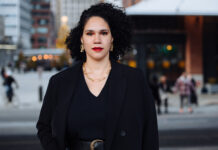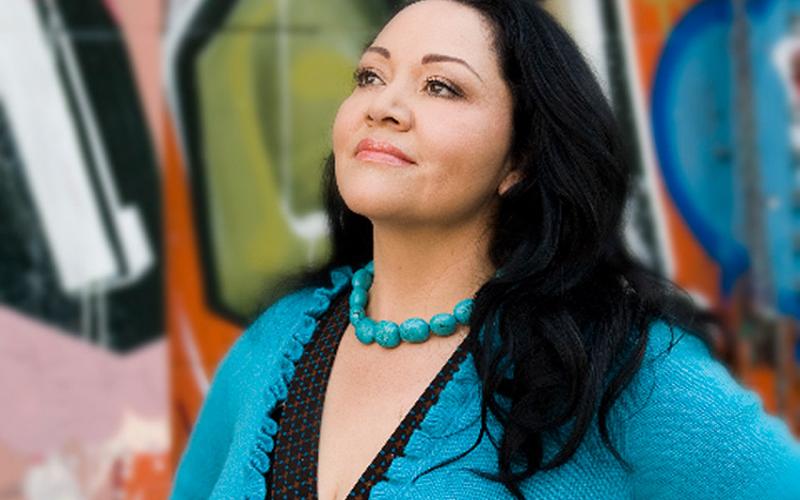So much has changed since playwright Josefina López first introduced Real Women Have Curves to the world in 1990: immigration is a regular topic of conversation, gentrification has crept into Boyle Heights (the city wherein the play occurs), and women with actual curves are not (as) shunned by the media. But for López, the biggest change has been her personal view of her play. “When I wasn’t at peace with myself, there were certain characters I didn’t love as much,” she says. “Now I love my life and have so much love and compassion for the characters to a different extent. All of these five women are really me.”
López has revised her play for a 25th anniversary production, which begins previews on September 8th at the Pasadena Playhouse. The show tells the story of five women who work together at a sewing factory and who must come to grips with the way they are perceived by others and how they perceive themselves. A film starring America Ferrera, Lupe Ontiveros, and George Lopez was a hit at the Sundance Film Festival in 2002, leading to theatrical release later that year.
“It’s still the classic play,” López says, “with a few changes here and there to make it present time. People are aware of immigration right now, whereas 20 years ago it was something the general public wasn’t talking about–especially immigrants. It’s a really fun play and it still makes me laugh. Each woman brings something beautiful–she brings her body. Having each woman bring herself and vulnerability on stage is very empowering.”
As for how things have changed for women since Lopez first wrote the play, she concedes that it’s a constant push and pull. “Things are changing and getting worse at the same time,” she says, pointing out that young girls are still dealing with the mental repercussions of unrealistic beauty standards. “There are women fed up and speaking up. We are liberated and powerful, but unconsciously there’s a part of me that says, ‘If I only lost 20 pounds…,’ which is something I’ve struggled with even though I know that’s not reality.”
Though first produced 25 years ago, the issues addressed in the play (race, gender, identity) speak to today’s headlines. López, who runs CASA 0101 Theatre in Boyle Heights (where Real Women was performed in 2002 and 2006) and became a U.S. Citizen in 1995, has mixed feelings about the changes going on in her neighborhood. “I like the changes coming from people coming back to their community. Why I love Boyle Heights is there are so many groups of people—Italians, Russians, Japanese. The idea that it has to stay Latino is wrong. Instead of looking at people’s race or color, did you come to take or to give? The tragedy I see is that so many people see it as an opportunity but [for] taking; celebrate what it is. Improve it for the people who live here.” She is passionate about immigration as well, particularly when it comes to politicians—in this case, Donald Trump—and their plans surrounding deportation. “When I have come across people with that much hate, I try to let them see my pain. I know what it is to feel like an alien. It’s an emotional violence against your existence. You are dehumanized by the term ‘alien.’ That’s the pain.”
If real women have curves, what do real men have? Without hesitation, López says, “Heart. When a man is really a man, he’s my ally. A real man loves women and children and protects people. A real man is a hero for those who are weaker. It takes heart to be able to feel for other people. A real man has to have heart.”














